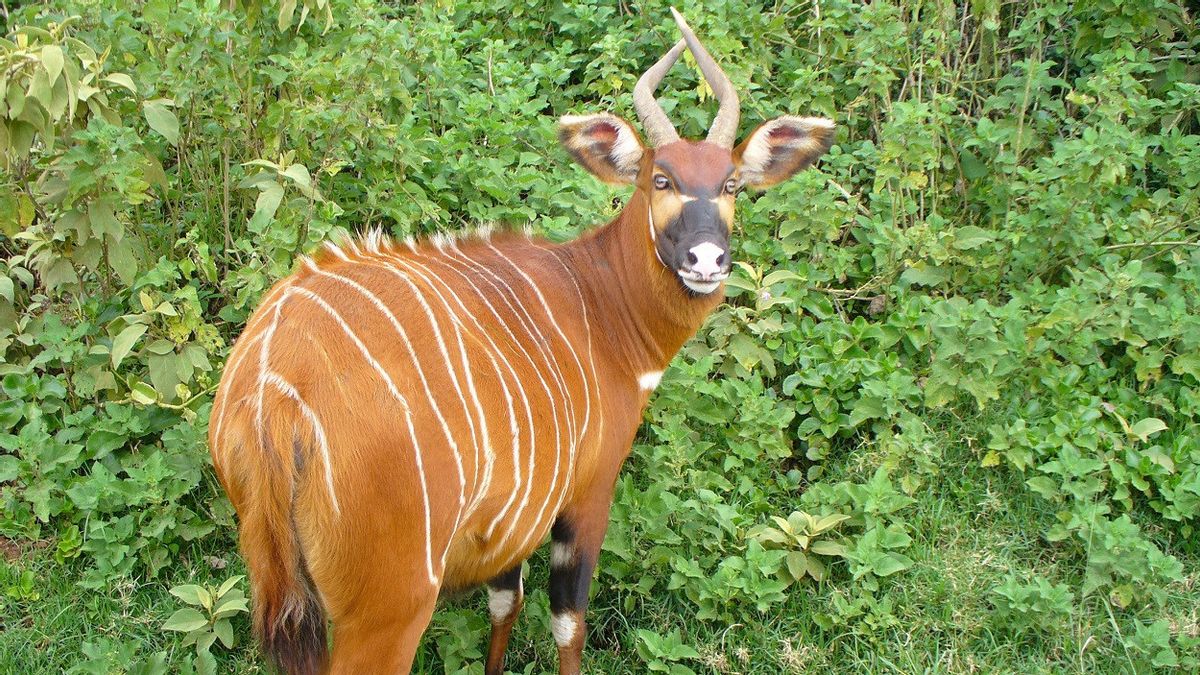JAKARTA - Still reeling from the transquilizer, the mountain bongo is making an uncertain first step outside of captivity when conservationists in Kenya open a sanctuary that they hope will bring the endemic forest antelope back from the brink of extinction.
A combination of disease, hunting and loss of forest habitat due to illegal logging and agriculture, has left fewer than 100 mountain bongos in the wild, according to the International Union for Conservation of Nature (IUCN).
But last week, conservationists released five large chestnut-colored antelope, native to Kenya's equatorial forests, into the 776 acre (3.1 square kilometers) Mount Mawingu Bongo Wildlife Refuge at the foot of Mount Kenya.
"The mountain bongo is one of the most important iconic animals in Kenya," said Najib Balala, the tourism and wildlife minister, after cutting the ribbon at the nature reserve's opening ceremony on Wednesday.
The release of the mountain bongos is the culmination of a captive breeding and rewilding program that began in 2004, with the goal of having 50-70 fully rebuilt bongos in the reserve by 2025, to reach 750 by 2050, according to the government.
"This is like the first step in recovery," said Isaac Lekolool, head of veterinary services at the Kenya Wildlife Service (KWS).

Mountain bongos once roamed widely in large numbers, but the few remaining animals, whose coats are characteristically thin white streaks, live in isolated pockets of forest dotted around Kenya.
Among these threats, the IUCN says there has been an increase in hunting of mountain bongo by local people, including hunting with dogs.
"This species is on its way to extinction in the wild unless something is done quickly," said Robert Aruho, head of animal services at the charity Mount Kenya Wildlife Conservancy (MKWC).
MKWC has set up conservation, education and community empowerment programs to raise awareness, while helping reduce human threats to animals.
In addition, MKWC also involved local communities in planting more than 35,000 native tree species around Mount Kenya, Africa's second highest peak, to restore damaged forest ecosystems.
To help maintain genetic diversity in breeding programs, approval has been granted to import bongos from Europe and the Americas, Aruho said.
"When they reach a point where we have to come to their aid, the price we pay in terms of financial resources, human resources is very, very big, and sometimes we are not ready to pay that price," Aruho said. .
"Reversing extinctions is very expensive and we must do everything necessary to prevent this," he concluded.
The English, Chinese, Japanese, Arabic, and French versions are automatically generated by the AI. So there may still be inaccuracies in translating, please always see Indonesian as our main language. (system supported by DigitalSiber.id)













